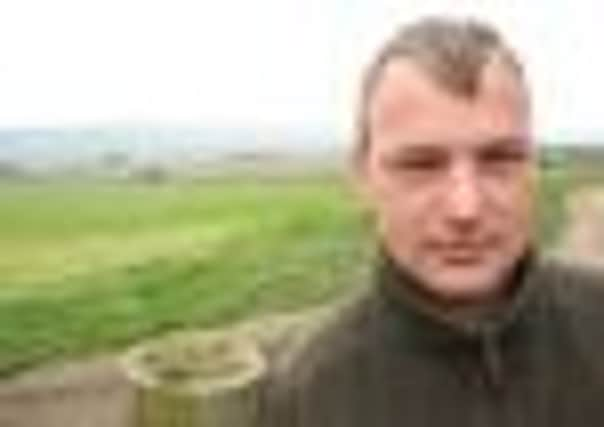Urgent call for connection


Richard Smith runs an arable and gamebird rearing farm near Spenithorne in Wensleydale with his father. It’s only a few miles from Leyburn and Middleham, but when it comes to getting connected online, they may as well be on the Moon.
“The main reason that we need broadband is that we have no access to the internet really,” says Mr Smith.
Advertisement
Hide AdAdvertisement
Hide Ad“The dial-up that we have keeps getting cut off. The electric fence on the next door farm runs over our phone line and the impulse from the fence actually disconnects our internet.
“We have no way of getting online for emailing and checking prices of various things and the sort of stuff that a lot of businesses use the internet for. We need it for keeping in contact with customers.”
According to William Worsley, the North Yorkshire-based national president of the Country Land and Business Association, the CLA, it’s a huge problem.
The CLA estimates that some 20 per cent of the population – about 11,000 businesses in Yorkshire – are unable to access a basic two megabits per second connection.
Advertisement
Hide AdAdvertisement
Hide AdNow there is new hope for them in the shape of a new type of mobile phone network already operating in Sweden which could reach the UK in a couple of years time.
It’s called 4g or Fourth Generation and like the current 3g network it will allow people to connect to the internet, only faster.
The prediction from the the communications regulator Ofcom is that the speeds for 4g will be between four and eight megabits per second.
This should be fast enough to allow people to watch “streaming video” such as YouTube, or BBC i-Player, as well as uploading photographs.
Advertisement
Hide AdAdvertisement
Hide AdDr Charles Trotman, head of rural business development at the CLA says, “The advantage of having 4g in a rural area is that you’re not having to rely on a fixed line broadband link, you’re not having to rely on a satellite link – and it is mobile.”
Ofcom is to auction the rights to use some of the frequencies which have been made available by analogue television services switching over to digital.
Three years ago the 3g auction raised £22bn for the Treasury. Many experts like Dr Trotman believe that the expense of bidding for the licences by the telecommunications companies has held back necessary investment.
The biggest bid, from Vodafone, was £5.96bn. BT Cellnet – now 02 – paid £4.03bn. Orange paid £4.1bn and One2One paid £4bn.
Advertisement
Hide AdAdvertisement
Hide Ad“The problem we have with 3g is that there aren’t enough masts – there is not the infrastructure to make 3g viable,” says Dr Trotman. This time it’s expected the money being bid will be much lower. William Worsley wants rural coverage to made a condition of the licences when they are issued.
“If this is not included, the operators who get the contract will not feel a need to do it because the economic argument may not be there.”
Ofcom talks about writing conditions into the new licences which would require a minimun level of coverage for 95 per cent of the population.
Mr Worsley wants land area, rather than population, to be the criteria.
Advertisement
Hide AdAdvertisement
Hide AdFor technology expert Bill Thompson, 4g will offer possibilities to digitally-deprived rural areas, but is only part of the answer.
“The solution is a reliable high-speed fibre network into every kerb.”
By this he means laying cables to roadside cabinets which will then feed into the homes nearby.
“That’s a long-term investment that can be easily upgraded. But 4g will fill a gap and it will allow large numbers of people to get reasonable levels of internet access at a time when they can’t get it any other way.”
Advertisement
Hide AdAdvertisement
Hide AdFor those, like Richard Smith in Wensleydale, who are out of the digital loop altogether, change can’t come soon enough.
“I think the 4g idea would be quite good. It would be a start at least if we could get something near broadband quality.”